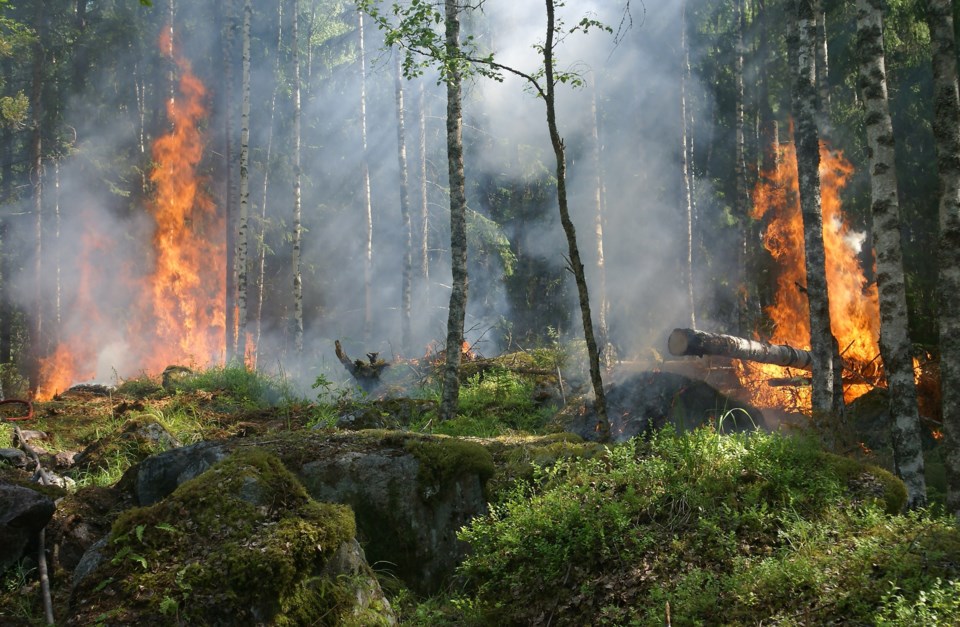Smoke from wildfires in northwestern Ontario wafting over this area has created some stunning sunsets.
It also resulted in air-quality warnings in and around Barrie earlier this week.
“Smoke from forest fires contains many air pollutants that can be harmful to our health, even at low levels. Children, older adults, pregnant women, and those with existing heart and lung conditions are at greater risk for illness or death,” Sarah Warren, climate change project associate with the Simcoe Muskoka District Health Unit, wrote in an email to BarrieToday.
Symptoms could include irritated eyes, nose and throat, headaches, and mild cough to more severe symptoms, such as shortness of breath, wheezing, severe coughing, dizziness, chest pains and heart palpitations.
Smoke exposure can also aggravate existing lung and heart conditions and lead to heart attack, stroke and premature death.
The alerts, Warren added, are intended to advise people to take precautions when levels are high.
The alerts are jointly issued by Environment and Climate Change Canada and the Ontario Ministry of the Environment and Climate Change when the Air Quality Health Index is forecasted to reach air-quality levels that are high risk for health.
The recent rain has helped to mitigate the situation, resulting in low-risk air quality according to today’s index for Barrie, although it remains moderate for much of the Greater Toronto Area and southern Ontario.
Officials continue to monitor air quality with the ongoing risk of wildfires throughout the summer.
This summer’s wildfires are triple the province’s 10-year average and have forced more than 3,000 people in northern Ontario to evacuate. There is concern that thousands more will have to evacuate their homes as wildfires continue to burn with new fires being reported throughout the north.
Warren said climate change is also a concern because it has the potential to increase levels of of dangerous air pollutants within Simcoe-Muskoka.
“Climate change will increase the frequency and intensity of severe thunderstorms, drought, and extreme heat, increasing the risk of forest fires which significantly impacts air quality. Rising temperatures, attributed to our changing climate, can also increase important air pollutants such as ozone in the air, further impacting air quality,” she said.
Those at greater risk for illness or death when air pollution is high include children, older adults, pregnant people, and those with existing heart and lung conditions, including asthma. Although, Warren said everyone is affected by air pollution.
She suggested those considered vulnerable reduce outdoor physical activities. They should also watch out for possible symptoms such as difficulty breathing, eye and throat irritation, coughing or headaches.
Air-quality alerts are available by clicking here.



